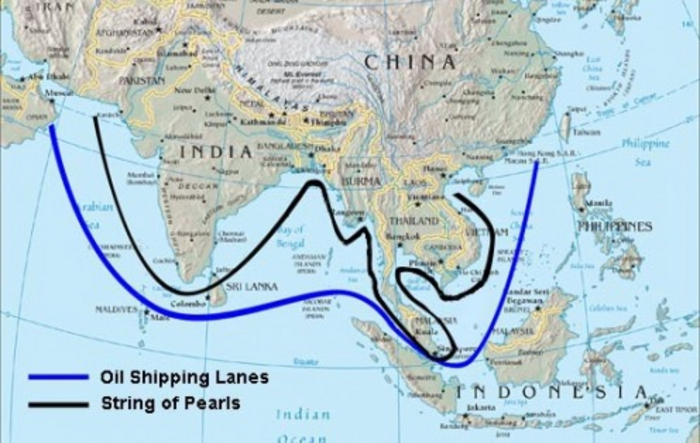This “string of pearls” strategy of bases and diplomatic ties includes the Gwadar port in Pakistan, naval bases in Burma, electronic intelligence gathering facilities on islands in the Bay of Bengal, funding construction of a canal across the Kra Isthmus in Thailand, a military agreement with Cambodia and building up of forces in the South China Sea.7 These “pearls” are to help build strategic ties with several countries along the sea lanes from the Middle East to the South China Sea in order to protect China’s energy interests and security objectives. Some of the claims are exaggerated, as has been the case with the purported Chinese naval presence in Burma. The Indian government, for example, had to concede in 2005 that reports of China turning the Coco Islands in Burma into a naval base were incorrect and that there were indeed no naval bases in Burma.
Still, the Chinese thrust into the Indian Ocean is gradually becoming more pronounced. The Chinese may not have a naval base in Burma but they are involved in upgrading of infrastructure in the Coco Islands and may be providing some limited technical assistance to Burma.
With almost 80 percent of China’s oil passing through the Strait of Malacca, given its reluctance to rely on US naval power for unhindered access to energy, it has moved to build up its naval power at choke points along the sea routes from the Persian Gulf to the South China Sea.
China is courting other states in South Asia by building container ports in Bangladesh at Chittagong and in Sri Lanka at Hambantota. Consolidating its access to the Indian Ocean, China has signed an agreement with Sri Lanka to finance the development of the Hambantota Development Zone at the southern tip of Sri Lanka, which includes a container port, a bunker system and an oil refinery. China’s activities at Marao in the Maldives have also generated apprehension in New Delhi.

